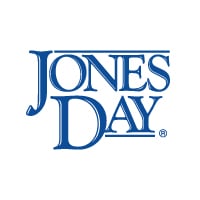

Group chief legal officer | Microlink Solutions



Navrita Kaur
Group chief legal officer | Microlink Solutions
What are the most significant cases, projects, or transactions that you and your legal team have recently been involved in?
Over the past year, my team and I have been deeply involved in several strategic initiatives that have enhanced the Microlink Group’s technological capabilities, compliance culture, and overall resilience.
One of our key achievements was drafting and reviewing agreements for strategic partnerships with two major players: one of the largest cloud computing service providers in the Asia-Pacific region, and an international cybersecurity solutions company. These collaborations significantly strengthened the Group’s technological infrastructure and competitive edge in the digital space.
We also played a central role in negotiating and executing multiple high-value contracts, including large-scale IT implementation projects for financial institutions, non-financial organisations, and government agencies. Among these was a landmark RM50 million project to implement and maintain the Group’s next-generation core banking system for a prominent foreign financial institution—demonstrating our ability to manage sophisticated fintech contracts that balance regulatory compliance with commercial goals. Additionally, we finalised a RM21 million managed services contract for a leading telecommunications provider in the Middle East, underscoring our expertise in complex, cross-border commercial transactions.
Another major milestone for financial year 2024 was securing a government tender worth over RM80 million for the implementation, design, and supply of an advanced passenger screening system for a national agency. From the tendering phase onward, the legal team provided comprehensive support, ensuring strict adherence to regulatory, contractual, and procedural requirements. We conducted extensive due diligence, refined contractual provisions, and offered strategic guidance to mitigate potential risks, contributing significantly to the success of the bid and the project’s early stages.
Finally, I spearheaded the establishment of the Microlink Group’s Anti-Bribery and Corruption (ABC) Management Committee, which I chair. Comprising heads of key departments, the committee oversees the Group’s ABC Management Programme and ensures compliance with international governance standards. Through this initiative, we have reinforced Microlink’s culture of integrity and accountability, embedding ethical practices across all levels of operation and strengthening the Group’s reputation for corporate responsibility.
How do you approach managing legal aspects during periods of instability or crisis to ensure the organisation’s resilience?
Managing legal risks during times of instability requires structure, foresight, and coordination across functions. My approach begins with an immediate legal risk assessment to identify potential exposures in areas such as contracts, regulatory obligations, employment, and data protection. A cross-functional response team—comprising representatives from senior management, HR, IT, and finance—is formed to ensure alignment and agility.
We conduct contractual reviews to assess liability, termination, and force majeure provisions, proactively engaging with counterparties to renegotiate terms or manage expectations where needed. Simultaneously, we reinforce data privacy and cybersecurity measures, working closely with IT and security teams to prepare for data breaches, establish incident response protocols, and ensure compliance with reporting obligations.
In terms of workforce management, I collaborate with HR on employment restructuring and compliance with Malaysian labour laws, ensuring fairness and transparency in all personnel decisions. Where disputes arise, we adopt a proactive litigation and settlement strategy, prioritising early resolution to minimise financial and reputational risks.
Throughout any crisis, all actions are documented meticulously, providing a clear record of due diligence and compliance. Once stability is restored, we conduct a post-crisis review to identify lessons learned and strengthen future policies and procedures—transforming each challenge into an opportunity for institutional improvement.
What do you think are the most important attributes for a modern in-house counsel to possess?
Modern in-house counsel must blend legal expertise with strategic, interpersonal, and adaptive skills. Strong business acumen is foundational—understanding the company’s operations, risk appetite, and commercial goals ensures that legal advice supports both compliance and growth.
Equally vital are communication and interpersonal skills. The ability to translate complex legal concepts into practical, business-friendly language and to influence decision-makers through clarity and trust is indispensable. Building strong relationships with internal and external stakeholders allows in-house counsel to be seen as enablers rather than obstacles.
Proactivity and adaptability are also essential. In-house lawyers must anticipate emerging issues, adapt quickly to changing priorities, and remain informed on evolving laws, regulations, and industry trends.
Finally, strategic thinking and risk management distinguish exceptional in-house counsel. The ability to see beyond immediate legal questions—to assess long-term implications, mitigate risks early, and align advice with the organisation’s broader objectives—ensures that legal remains an integral part of business strategy.
Based on your experiences in the past year, are there any trends in the legal or business world that you are keeping an eye on that you think other in-house lawyers should be mindful of?
Several trends have become increasingly significant for in-house counsel in Malaysia and across the region.
First, data privacy and cybersecurity are at the forefront. With the coming into force of the Malaysia Cyber Security Act 2024 and amendments to the Personal Data Protection Act 2010, there is heightened emphasis on data governance, breach response, and cyber resilience. In-house lawyers must play an active role in ensuring that their organisations maintain robust data protection and cybersecurity frameworks.
Second, ESG and sustainability-related regulations are gaining momentum, particularly for listed companies facing enhanced sustainability reporting requirements. Legal teams must collaborate with sustainability, risk, and compliance functions to ensure that ESG obligations are embedded in governance and operational processes.
Finally, the governance of artificial intelligence is an emerging area of focus. With Malaysia’s 2024 launch of the National Guidelines on AI Governance and Ethics, organisations are encouraged to adopt responsible AI practices even in the absence of binding regulation. In-house counsel, particularly in technology-driven sectors, should familiarise themselves with these principles to guide ethical AI development and deployment.
Together, these trends underscore the evolving role of in-house legal teams—from risk managers to strategic partners driving responsible innovation and sustainable growth.
Chief legal officer | Microlink Solutions
Chief legal officer | Microlink Solutions
Group chief legal officer | Microlink Solutions